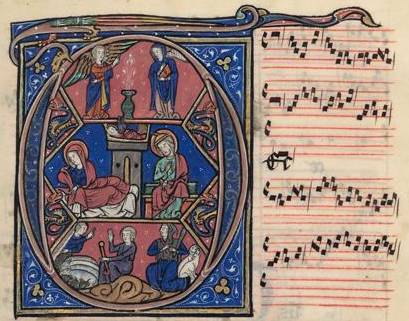 People often ask me when I talk about this project: what the heck is a motet anyway? Well, the definition of a motet has changed over the centuries, so this is not an easy answer. Because of this the renowned Bach scholar Philipp Spitta openly scorns the motet in his three volume biography of the composer saying that it never really refined and defined itself the way other old musical art forms have. Depending on who you ask even the origins of the term “motet” are in dispute. Most scholars today think “motet” comes from the French word for “word” itself, “mot.” In the age of the Notre Dame School, when polyphony was getting carried away in the 13th century, there was a lot of criticism from the church that the words of these crazy new choral settings could no longer be understood because of all these competing musical lines. Some of the clearer lines to the ear were the descant or plainchant parts, the higher harmonies and chants floating over what was often heard as cacophony below. There came a point when French poets put new words to these parts, and originally these were often secular texts. It wasn’t uncommon to even have competing texts written for these parts in several languages at once! The polyphonic parts below were preserved as instrumental parts, so the original motets have more in common with solo songs or madrigals. Here’s a more concise article on the evolution of the motet. 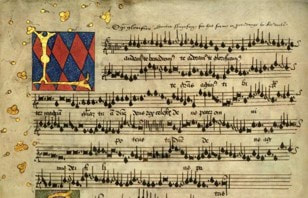 Manuscript from a rarely performed motet by Thomas Tallis Manuscript from a rarely performed motet by Thomas Tallis From here motets began to evolve into very different animals. During the Renaissance they became sacred again, and choral, with or without instrumental accompaniment. They also became grand showpieces that took that Notre Dame School polyphony to the next level. Motets became central sections to masses, so much so that masses were often named after the motet incorporated into them. In German speaking areas the motet texts could be sacred but non-biblical texts, and usually fell into one of two categories: a chorale motet or an aria motet. The chorale motet uses chorale texts and the structure of the motet is often dictated by the chorale in some way. An aria motet is a string of strophic arias sung by one or more soloists. Johann Sebastian Bach’s cousins, Johann Michael (also Sebastian’s father in law) and Johann Christoph Bach, wrote a great many motets which Sebastian studied and frequently performed himself in the course of his church duties. Give some of those a listen, the best of them are incredibly moving and awe inspiring. 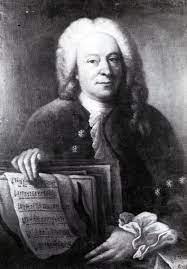 Johann Christoph Bach, see any resemblance? Johann Christoph Bach, see any resemblance? By the time J.S. Bach began writing motets of his own the art form was already considered old fashioned, or at least very traditional and rather conservative, which is why motets were a good choice for funerals and teaching examples. Bach composed motets for both of these purposes, primarily the former, however Singet dem Herrn and Lobet den Herrn were definitely not for funerals as their texts are too celebratory. Singet was likely a teaching motet and there are still a lot of questions around Lobet, more on that later. There are six motets in the current canon of J.S. Bach’s works that are often presented and recorded together:
It’s extremely uncommon for all of these motets to be sung together on one live program, however, Seattle’s Emerald Ensemble did do this for their inaugural concert in 2016, which I had the good fortune to attend, and it is still talked about today for the remarkable feat it was! That being said, Bach never intended for these pieces to go together in this way, and the catalog numbering system only indicates their musical genre in a weird haphazard order unrelated to their dates of composition. There are also additional motets that are either: actually written by Bach, once considered to be written by Bach but actually composed by someone else, or parodies of other Bach pieces put into motet form. These are as follows:
You can read more about all of these here. From this list of extra-canonical motets only Ich lasse dich nicht; O Jesu Christ, mein Lebens Licht; and possibly Sei Lob und Pris mit Ehren are actually by Bach. Now that all that historical background is out of the way I want to talk about my concept for a puppet show around the motets. It’s an idea I’ve been kicking around for a few years now, but without any real solid concept. One day at a Seattle Bach Choir board meeting I mentioned this idea and how I’d love to create a puppet show for them not really thinking they would take me seriously. Seattle Bach Choir had a new director who had just finished his first concert with us at that point, Dr. Daniel Mahraun, and he was actually very interested in this idea! Now I had to flesh out a real concept for this puppet show. We sat down to discuss the idea in February of 2020 with a plan to put it on in 2021, but then the pandemic hit and everything was delayed. The show is finally happening three years later! I hadn’t yet created a puppet show around Christian texts, and this posed an interesting issue because I am not Christian myself. My concept for the motets became a sort of personal spiritual manifesto in shadow puppet form, and I say “sort of” because my focus is on the more universal aspects of my spiritual system. For years I created translations (or more often simply rearranged existing translations) for Seattle Bach Choir’s concert programs, and these motets were frequently in the repertoire. I joked that there are only two themes present in them: praise God, or my life is awful and I can’t wait to die. However, my weird esoteric spiritual background colored my translations. We frequently performed works with Christian texts that had standard English translations, but I would look at them with a different eye and bend them a bit toward the esoteric whenever I could. I’ve never admitted it until now, but there ya go! 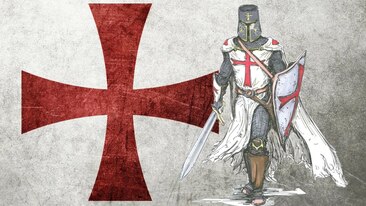 Imagine this guy but with a really long beard Imagine this guy but with a really long beard The overarching concept I came up with for a motet puppet show is about pathways to enlightenment and the spiritual unity of all life. This all goes back to a dream I had when I was between 11 and 13 years old. I dreamed that I was in a prison cell with my brother and we were visited by an ancient medieval knight dressed in white armor with a red cross on his breastplate, long flowing white hair and beard touching the floor. He said only, “there are as many paths to enlightenment as there are rays of light to the sun.” In retrospect this must have been a spirit guide visitation, and apparently a member of the Knights Templar flouting the importance of his beard. It left a lasting mark upon me and I still say his phrase all the time. I think it’s important to recognize everyone’s personal truth. In my own spiritual system reincarnation plays a big role, which means (as I see it) from life to life we have experienced and believed in many different faiths and followed many different religions. Does that mean they’re all false? I would say completely the opposite, what if they’re all true? Could there really be that many different truths, and doesn’t that negate the very concept of truth? Maybe, but what if all these truths lead to the same place? In my system the truth we hold dear right now is exactly the truth we are meant to have at the moment. As long as we are harming none then our belief filters are doing an important job. I don’t think we can control our beliefs very well as humans, not to say that they don’t change sometimes, but they do provide our consciousness with a user interface, and we can’t operate on earth without one. For the puppet show I thought about all the forms in nature that create pathways: rivers, roots, branches, rays of light, gusts of wind, and even the veins of the human body. Because Jesu meine Freude is composed as a musical palindrome I wanted to put it at the center of the motet puppet show. This would make the central fugue, ihr aber seid nicht fleischlich, sondern geistlich (we are not of flesh, but rather of spirit), the central point of the puppet show. In my mind Jesu meine Freude follows the pathways of veins, nerves, and bones in the human body, and this fugue would be a battle within the heart itself. A woodpecker and a beaver from Komm, Jesu, komm The only other rules I had were that Lobet den Herrn should start the show and Singet dem Herrn should end it because both of these motets are songs of praise. Lobet would involve the path of light with stars and flowers, and Singet the path of air filled with breezes and birds. Der Geist hilft represents the path of wood (as seen by a squirrel climbing a tree) while Fürchte dich nicht represents the path of roots with a worm digging through the dirt. Komm, Jesu, komm shows the path of water represented in the journey of goldfish from sewer to ocean. The order I have in mind is: 1. Lobet den Herrn 2. Komm, Jesu, komm 3. Der Geist hilft 4. Jesu meine Freude 5. Fürchte dich nicht 6. Singet dem Herrn For me there’s a thematic echo between Der Geist and Fürchte because of how trees and roots are related, so they’re reflected on either side of the center making a thematic palindrome around a musical palindrome. But in order for this to be a real palindrome with a center I would need an odd number of motets. A few months ago I discovered Ich lasse dich nicht and got very excited! Here is a seventh motet to complete my palindromic idea! It would go just after Jesu meine Freude, but I’m not yet sure what the theme would be, a system of pathways related to water in some way. Lava maybe? Liquid stone? Caves created from water erosion? Glaciers? All of the above?  A douglas fir cone from Der Geist hilft unsrer Schwachheit auf A douglas fir cone from Der Geist hilft unsrer Schwachheit auf It’s a big idea, but like I said before it’s very rare that all six motets are performed by one choir in one concert, let alone seven! However, I am hoping to one day gather together two or three chamber choirs to share the load and perform all the motets in order that way. In the meantime you can catch the first three with shadow puppets and live singing by Seattle Bach Choir at Our Redeemer’s Lutheran Church in the Ballard neighborhood of Seattle on March 12, 2023 at 7:30 PM. That Sunday is also the start of daylight saving’s time, so remember to spring ahead. Entrance is by donation only, so get there early to claim a seat, and bring opera glasses if you have some as the puppets are somewhat dainty. Watch this blog for more about these three motets. I’ll be discussing each one individually over the next few weeks. In case you’re interested, here’s a partial discography of Bach motet recordings we puppeteers have been practicing with. We like to stay on our toes, so we’ve been alternating between several recordings.
0 Comments
Leave a Reply. |
AuthorHi, Juliana Brandon here. This is where I let you peek behind the scenes here at Paper Puppet Opera. See works in progress, rehearsal snippets, and learn more about the history behind each production. Archives
March 2023
Categories |
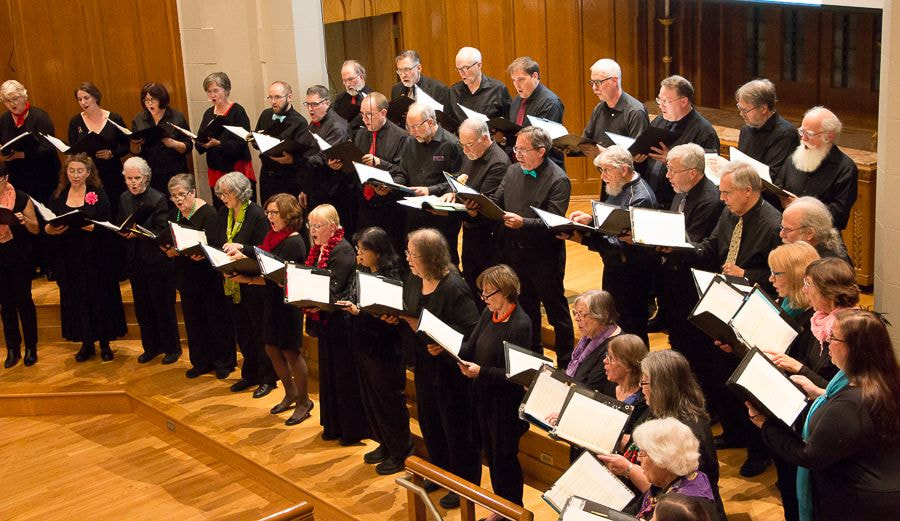
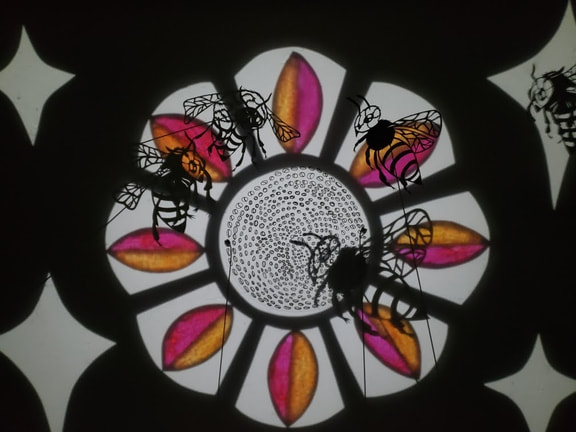
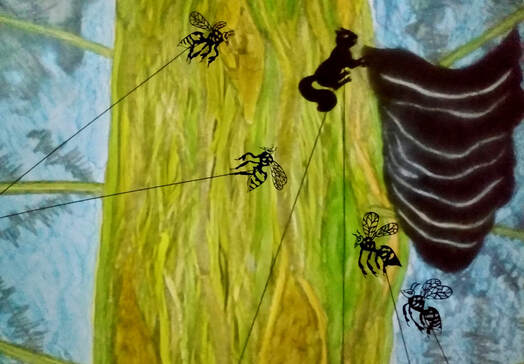
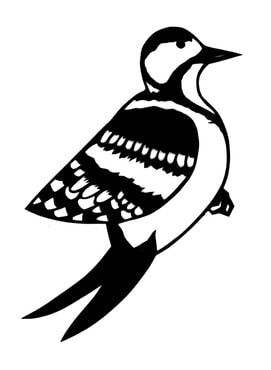

 RSS Feed
RSS Feed